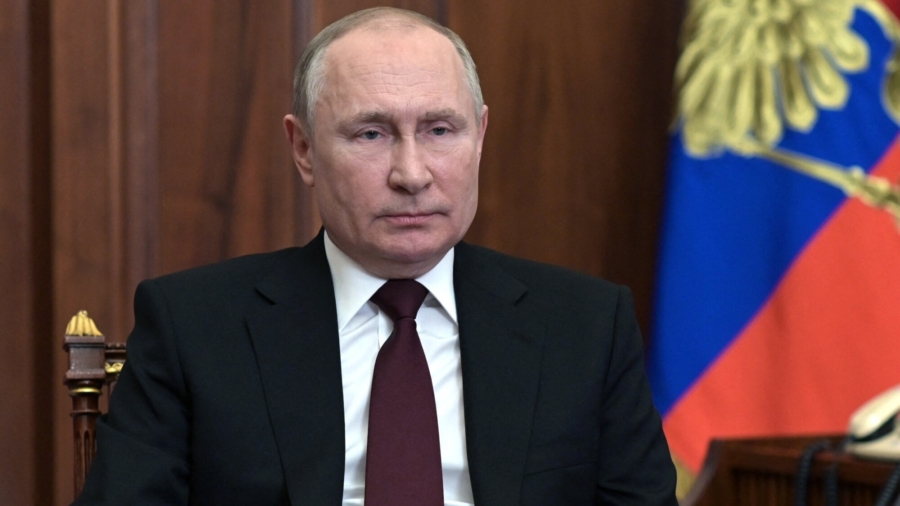After Russian President Vladimir Putin said he will recognize the breakaway Ukrainian Donetsk and Lugansk regions as independent, he ordered Russian military troops into the area on late Monday.
According to a decree issued by the Kremlin and signed by Putin, the Russian Defense Ministry is now authorized to send troops into the Donbas area in eastern Ukraine to “maintain peace.” He also told the Ministry of Foreign Affairs to establish diplomatic relations with both Donetsk and Lugansk, reported Russian state-run media.
Earlier on Monday, Putin gave a lengthy televised speech from his office in which he claimed Ukraine is an integral part of Russia’s history. The Soviet Union under Vladimir Lenin created the modern Ukrainian state and separated it from Russia, he further said, while adding that he believes Ukraine is seeking to create nuclear weapons that will threaten Moscow.
“Ukraine has never had traditions of its own statehood,” the Russian president said, describing the eastern part as “ancient Russian lands.”
“Russia has always tried to resolve all conflicts by peaceful means. Nevertheless, the Kyiv authorities conducted two punitive operations in these territories [Donetsk and Lugansk], and it seems that we are now witnessing an escalation for the third time,” Putin said, without providing specifics.
Russian state television showed Putin, joined by Russia-backed separatist leaders, signing a decree recognizing the independence of the two Ukrainian breakaway regions along with agreements on cooperation and friendship.
“I deem it necessary to make a decision that should have been made a long time ago … to immediately recognize the independence and sovereignty of the Donetsk People’s Republic and the Luhansk People’s Republic,” Putin said in conclusion.

After his speech and decree, Western leaders described the move as illegal and a sign that Russia will invade Ukraine in the near future. Officials have said that between 100,000 and 190,000 Russian troops are stationed along its border with Ukraine, while videos uploaded on social media for weeks have shown heavy Russian weapons, tanks, and artillery being deployed in the region.
In response, the Biden administration levied limited sanctions against certain Russian individuals, according to a statement from the White House. Other Western leaders claimed Putin’s speech and decree as an escalation in the weekslong crisis.
The White House said President Joe Biden will soon issue an executive order “that will prohibit new investment, trade, and financing by U.S. persons to, from, or in” Donetsk and Luhansk.
This action “will also provide authority to impose sanctions on any person determined to operate in those areas of Ukraine,” White House press secretary Jen Psaki said in a statement on Monday. The administration, she continued, “will also soon announce additional measures related to today’s blatant violation of Russia’s international commitments.”
Secretary of State Antony Blinken said Putin’s decree “requires a swift and firm response” and that the United States will “take appropriate measures” in the near future.
The European Union, too, announced that it would issue sanctions against individuals “involved in this illegal act” of recognizing the two Ukrainian regions’ independence.
Reuters contributed to this report.
From The Epoch Times

